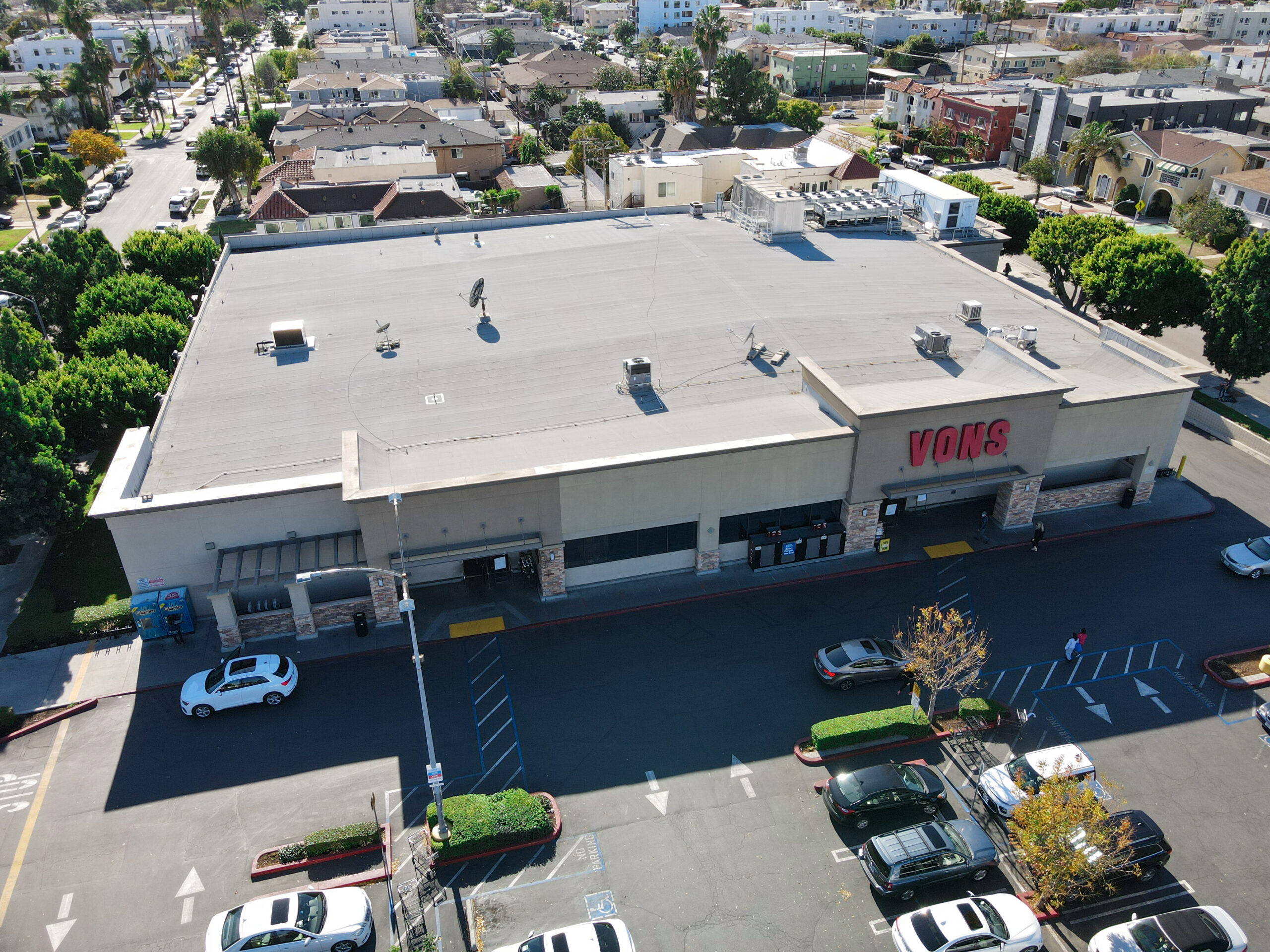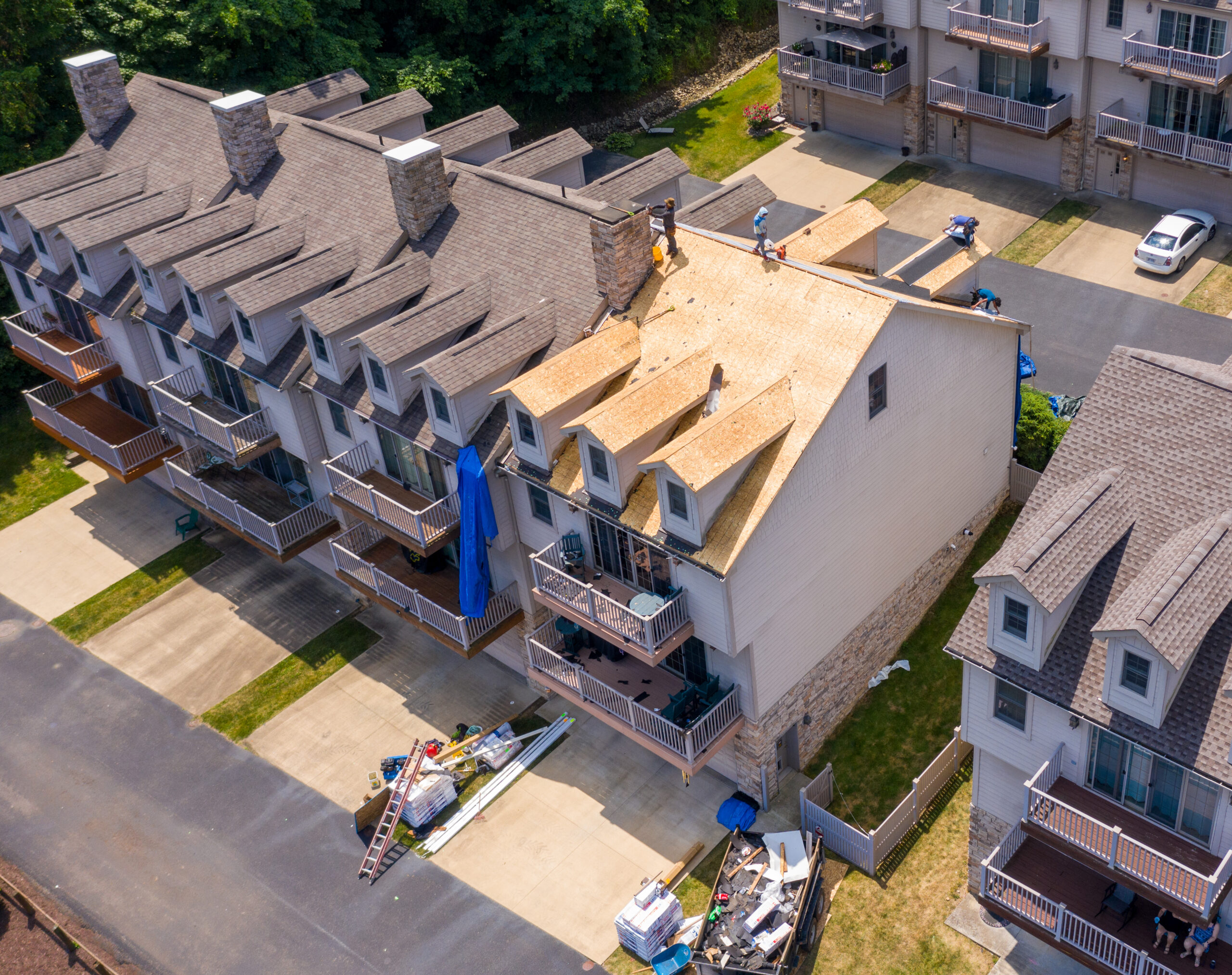Our experienced team works closely with you to provide tailored solutions based on your location, climate, budget, and building requirements. From installation to maintenance, we handle a variety of roofing systems, including single-ply membrane, composite shingles, and metal roofing. With a commitment to superior craftsmanship and exceptional customer service, we ensure your business stays protected and looking its best.Ready to secure your commercial property? Contact Commercial Roofing Co. today to request a quote or schedule a consultation!
About EC Commercial Roofing Co.

Why Choose EC Commercial Roofing Co.?
With over 32 years of experience, we’ve mastered the skills and techniques of commercial roofing, offering solutions that stand up to Maryland’s weather and Building Code standards.
We offer a full range of materials to meet the design of each project, including shingles, single-ply roofing systems and metal roofing.
We believe in a communicative and collaborative approach to each project and work with our contractor client to ensure the project meets the expectations set forth in the design.
Types of Commercial Roofing We Provide

Flat Roofing Systems (EPDM, TPO, Modified Bitumen)
- Made from synthetic rubber, EPDM is highly flexible and resistant to weathering, ozone, and UV rays.
- Perfect for a variety of climates, EPDM is a cost-effective solution with a lifespan of 25–30 years.
- TPO membranes are heat-welded during installation, creating a seamless, watertight surface.
- Known for energy efficiency, TPO reflects heat, reducing cooling costs in warm climates.
- Made using a combination of asphalt, rubber, and fiberglass, modified bitumen is durable and lasts 15-20 years.
- Installed with a torch-down or self-adhered application, modified bitumen can be installed any time of year.
Benefits of Roofing Membranes
Minimizes the risk of leaks and water intrusion.
Reflective coatings and inherent material properties reduce heat absorption, lowering energy costs.
Properly installed membranes can last 20–30 years with routine maintenance.

Shingle Roofing
Benefits of Shingle Roofing
Widely-applied roofing solution that suits most multi-family homes and small businesses.
With a wide variety of shingles, your roof will fit the needs of your facility and match its aesthetic.
Shingle roofs are tried and true – making repairs and ongoing maintenance easier and straightforward.

Metal Roofing
Benefits of Metal Roofing Systems
Metal roofs can withstand heavy winds, hail, and other severe weather conditions.
Metal roofs often last 40–70 years with minimal maintenance, providing excellent long-term value.
Flat Roofing Systems for Maryland & South Central Pennsylvania Businesses
Whether you’re looking to install a new roof, replace an old one, or extend the life of your current roof, we offer proven flat roofing options to ensure long-lasting performance, energy efficiency, and weather resistance. Here’s an overview of the most popular flat roofing systems we provide:

Shingle Roofing
Shingle roofs are reliable, durable, and cost effective roofing solutions commonly found on multifamily homes and small businesses. Steep-slope roofing utilizes a pitched roofing system using architectural shingles which come in a variety of colors
Benefits of Shingle Roofing
Widely-applied roofing solution that suits most multi-family homes and small businesses.
With a wide variety of shingles, your roof will fit the needs of your facility and match its aesthetic.
Shingle roofs are tried and true – making repairs and ongoing maintenance easier and straightforward.
Roofing Membranes (EPDM, TPO, PVC)
Single-ply membrane roofing systems have gained popularity for their efficiency, durability, and lightweight construction. These materials are designed to provide seamless protection, reducing the risk of leaks and damage.
- Made from synthetic rubber, EPDM is highly flexible and resistant to weathering, ozone, and UV rays.
- Perfect for a variety of climates, EPDM is a cost-effective solution with a lifespan of 25–30 years.
- Made from synthetic rubber, EPDM is highly flexible and resistant to weathering, ozone, and UV rays.
- Perfect for a variety of climates, EPDM is a cost-effective solution with a lifespan of 25–30 years.
- TPO membranes are heat-welded during installation, creating a seamless, watertight surface.
- Known for energy efficiency, TPO reflects heat, reducing cooling costs in warm climates.
Benefits of Roofing Membranes
Minimizes the risk of leaks and water intrusion.
Reflective coatings and inherent material properties reduce heat absorption, lowering energy costs.
Properly installed membranes can last 20–30 years with routine maintenance.


Metal Roofing
Metal Roofing Systems are popular as an auxiliary roof structure to be used as a Mansard or awning type roof over building entrances and loading dock areas for protection against inclement weather conditions.
Benefits of Metal Roofing Systems
Metal roofs can withstand heavy winds, hail, and other severe weather conditions.
Metal roofs often last 40–70 years with minimal maintenance, providing excellent long-term value.
Although metal roofing may involve a higher upfront investment, its durability and energy-saving potential make it a cost-effective option for businesses focused on long-term performance.



